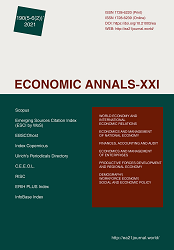The correlations between the responsible flying and changes in the tourism industry
The correlations between the responsible flying and changes in the tourism industry
Author(s): Bulcsú Remenyik, Dániel Horváth, Goran ĆorlukaSubject(s): Energy and Environmental Studies, Tourism, Transport / Logistics
Published by: Institute of Society Transformation
Keywords: Sustainable Air Traffic; Responsible Aviation; Pandemic; Emission of Greenhouse Gases; Responsible Tourism;
Summary/Abstract: According to touristic cycle-theory, raising and decreasing waves show cyclicality showing more and more oscillation in time and depth. It has impact on intermediary sector as well as on relationship between tourism and transportation. It can be observed that air transportation transformed after recession but got out of trouble strengthened. Current transformation can be described as responsible fly, next crisis can be avoided only by evolving a comprehensive, sustainable development. Under green transformation we understand the decreasing of emission of pollutant gases by aviation, reducing the power consumption and participation in environment protecting projects. In terms of future it means a serious problem that according to research of Eurocontrol carbon emission can be doubled, the international organizations called aviations for reducing their emission already in 2018. In our research we looked for answers to the questions of why the sustainability of airlines has come into view just now and what people think about it as well as what the influence of the current situation will be on tourism and its transformation. A combination of economic, social, environmental, and psychological factors has recently been affecting the development of sustainable air traffic. Changes have arisen due to economic challenges as airlines faced restrictions which they have never seen in the past, such as border closures and several week long quarantine requirements for passengers. These resulted in the grounding the aircraft of airlines within a few weeks. Due to the pandemic, all airlines were in need of financial support from the Member States of the European Union. Each Member State and their cities with airports have an interest in the reduction of pollutant gases (the total CO2 emission of air traffic is 859 million tonnes per year, IATA 2020). Due to interdependence resulting from the crisis, a responsible air development programme has been started. Psychological factors have come to the forefront due to the pandemic, which means further challenges for the airlines. How could overcrowded flights be made safer for passengers? How would it be possible to win back the confidence of passengers? As for the tourism industry, the resumption of flights and the operation of the sector are crucial issues (58% of international passengers fly to their destination) and a lot depends on the recoverability of psychological sustainability. Our travel habits should change in the future and this process would show the path to more balanced development.
Journal: Економічний часопис - ХХІ
- Issue Year: 190/2021
- Issue No: 5-6(2)
- Page Range: 86-97
- Page Count: 12
- Language: English

